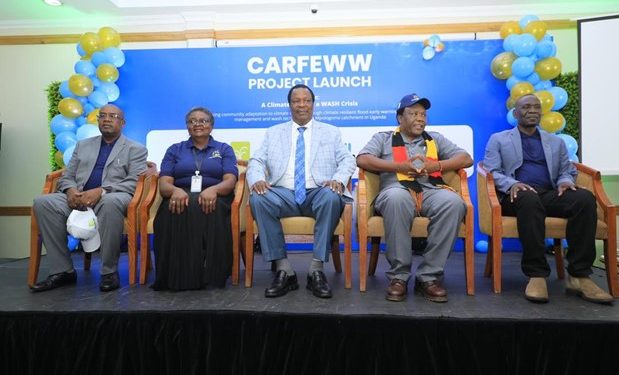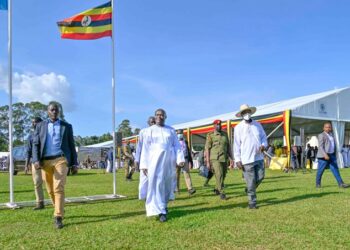MBALE, Uganda, July 24, 2024 — Residents of 11 districts in Eastern Uganda can now look forward to relief from flooding and landslides with the launch of a climate change adaptation project in the Mpologoma water catchment area. This $9.5 million project, funded by the Adaptation Fund, will be executed by WaterAid Uganda in partnership with the Ministry of Water and Environment.
“WaterAid Uganda recognizes the incredible impact that climate change continues to have on our communities living within the Mpologoma water catchment area. Disasters such as floods, storms, and landslides are destroying livelihoods, water supply and sanitation facilities, leaving behind contaminated water and putting the lives of millions at risk,” said Dr. Joyce Mpalanyi Magala, Country Director of WaterAid Uganda. “We are truly excited for yet another opportunity to join hands with the Ministry of Water and Environment and ensure that families and communities in the Mpologoma Water Catchment Area adapt to these climate change events. Our strategy promotes locally led adaptation methods grounded in the local context.”
The project, titled “Enhancing Community Adaptation to Climate Change through Climate Resilient Flood Early Warning, Catchment Management, and WASH Technologies in Mpologoma Catchment” (CARFEWW), will be implemented in 11 districts considered most vulnerable to floods and landslides. These districts include Bududa, Namisindwa, Manafwa, Mbale, Tororo, Butaleja, Budaka, Kibuku, Pallisa, Namutumba, and Kaliro.
This initiative supports the government’s efforts to implement the Integrated Water Resources Management (IWRM) framework. As the executing entity, WaterAid Uganda (WAU) will coordinate the day-to-day implementation of project activities on the ground. WAU will work closely with the Kyoga Water Management Zone (KWMZ), Uganda Women Network (UWONET), Water Resources Institute (WRI), Regional Centre of Rural Water and Sanitation 3 (RC-RWS3), Eastern Umbrella of Water and Sanitation (EUWS), and Water and Sanitation Development Facility-East (WSDF-E).
Over the next four and a half years, the project aims to strengthen the institutional capacity for planning, designing, implementing, and monitoring integrated Flood Early Warning systems and climate-smart WASH technologies. Additionally, the project will facilitate communities in undertaking adaptation actions to reinforce the resilience of populations and ecosystems against floods and landslides.
WaterAid Uganda has successfully implemented several projects over the past 40 years, focusing on WASH in public health and climate resilience. Notable projects include the “SMART CITY” project in Mbale City, Eastern Uganda, which aims to improve access to and governance of WASH services for the urban poor. The experience and lessons learned from these projects will be applied to ensure the success and sustainability of the CARFEWW project.







Discussion about this post